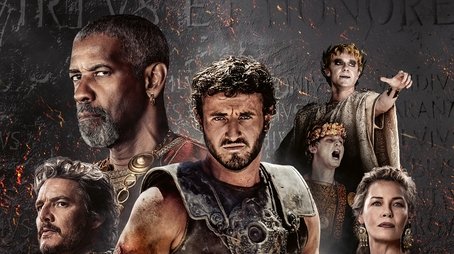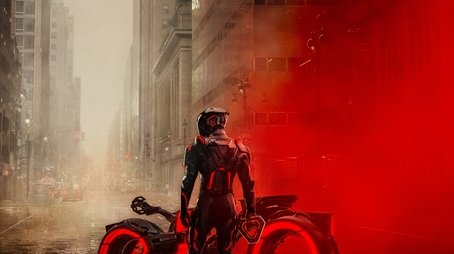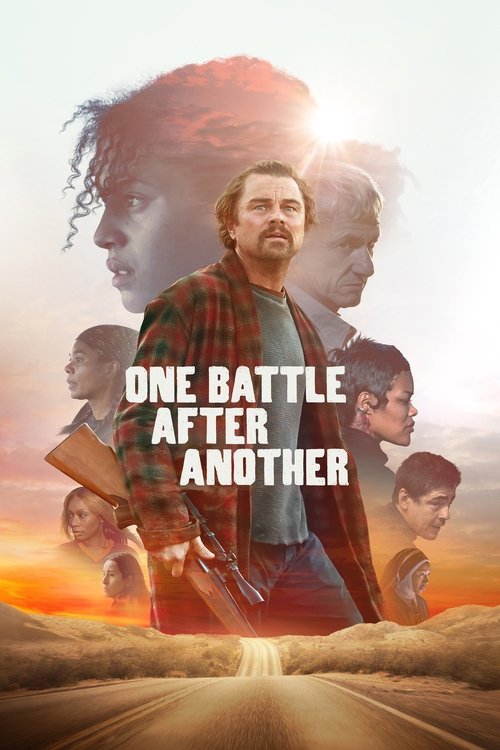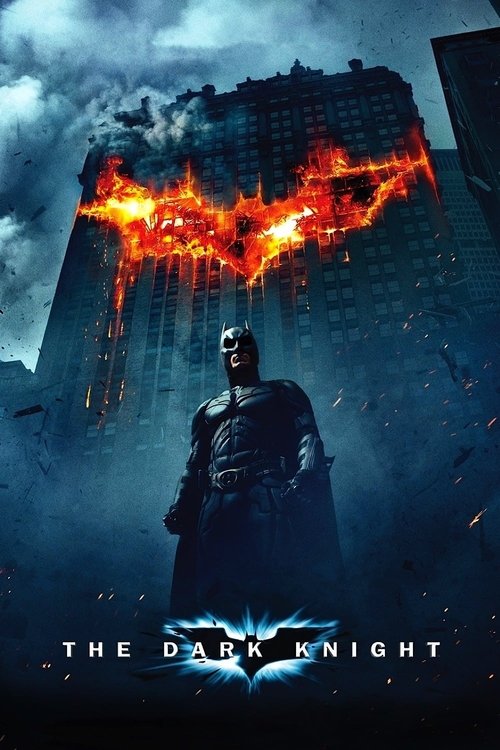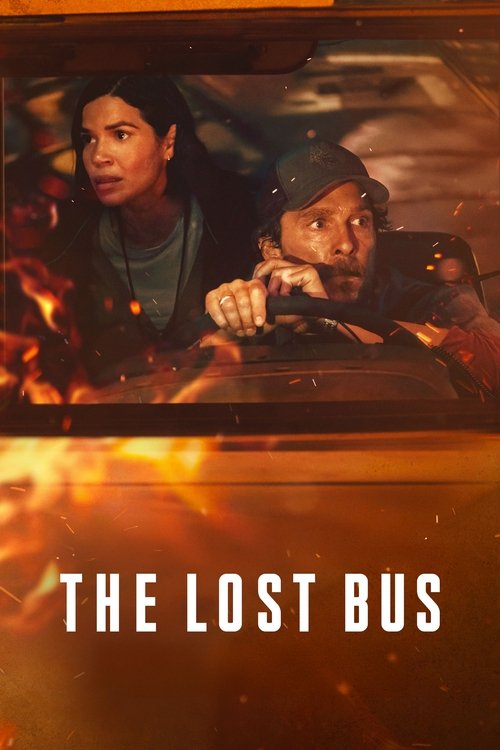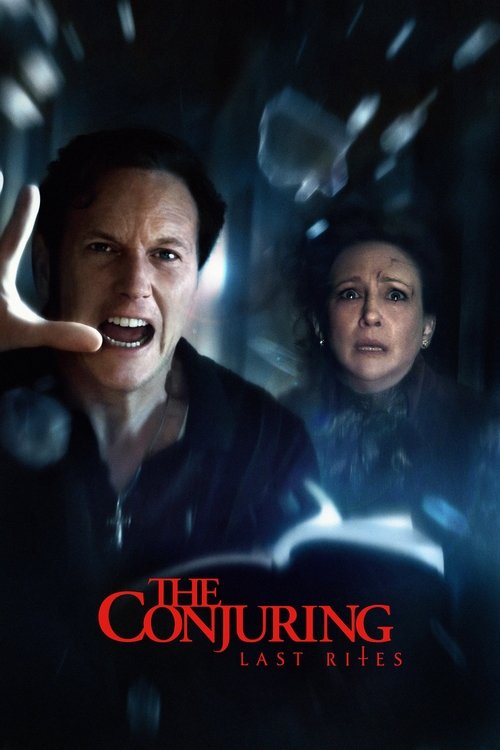
Ask Your Own Question
What is the plot?
Sixteen years after the demise of Marcus Aurelius, Rome is governed by the corrupt twin emperors Geta and Caracalla. In the North African kingdom of Numidia a man calling himself Hanno lives in seclusion with his wife Arishat, farming and raising a small household. A Roman army under General Justus Acacius arrives at Numidia's gates; the settlement fights back, and Hanno and Arishat join their fellow warriors. During the engagement Acacius notices Arishat loosing arrows; he orders his men to target her. An arrow pierces her and she collapses, falling into the sea, while Hanno is struck and washed into the surf. He hovers between death and life as he watches Arishat pulled away; soldiers seize the survivors and carry them into slavery.
The captured Numidians are transported to the coast at Ostia and then to Antium, where the Romans advertise the newcomers as potential gladiators. In a spectacle intended to humiliate and test them, the captives are forced to fight feral baboons. The Numidian chieftain Jubartha chooses not to survive, allowing a baboon to tear into his neck, but Hanno fights back. He bites through a baboon's forelimb and, using his shackles, throttles the animal until it dies. A veteran stablemaster named Macrinus observes Hanno's savagery and notes the hunger behind his violence. Macrinus speaks with the survivor, who reveals his name as Lucius Verus Aurelius and tells Macrinus that he wants vengeance on Acacius for killing his wife. Macrinus promises Lucius that if he proves himself in the arena in Rome, the stablemaster can provide the opportunity to confront and kill Acacius.
Macrinus sends Lucius into formal training and into initial ring bouts. In one early match Lucius fights a trainer called Viggo and impales him, demonstrating striking hand-to-hand prowess. Macrinus begins to build Lucius into a marketable gladiator. Meanwhile General Acacius returns to Ostia and to his wife, Lucilla, who has remarried since Maximus's death. Acacius voices disgust at the emperors' hunger for foreign conquest and the cost in Roman blood; Geta and Caracalla, meanwhile, celebrate Acacius's victory and announce plans for further imperial campaigns in Persia and India. The twin emperors instruct senators to plan grand games at the Colosseum to honor Acacius, and the city prepares for spectacular entertainments.
At a private banquet thrown by Senator Thraex, Macrinus brings Lucius as part of a demonstration. Forced into combat for the amusement of the guests, Lucius is compelled to kill another man; after the bout Geta addresses Lucius and asks about his origins. Lucius answers by reciting lines from Virgil, showing that he has received Roman education in his youth. Back at the ludus, Lucius is cared for by the gladiators' physician Ravi, who tends his wounds and shares his own history as a former slave who earned freedom through fighting. Ravi shows Lucius a modest shrine to the legendary Maximus inside the training quarters and points out a sword and armor kept there, items associated with Maximus though Maximus's name has been crossed out from the memorial.
The Games begin in the Colosseum. Lucius runs sand through his fingers in the arena the way Maximus once did; this gesture catches Lucilla's attention as she watches in the imperial boxes. Lucilla freezes, then recognizes the man she once sent away as a child to protect him from political enemies: he is her son, Lucius. She watches him fight a champion named Glyceo, who enters the arena astride a rhino and slaughters several men before the contest turns to Lucius. The two engage in brutal combat; Lucius is knocked down but returns to impale Glyceo. The emperor's sign results in Glyceo's decapitation.
After the bout Lucilla goes to her private chambers and turns over memories of the past; she recalls sending her boy into exile and realizes that he is now a gladiator in Rome. Lucillus later visits Lucius in his cell in the training barracks, attempting to reconnect and to reveal his lineage. Lucius rejects her at first, furious that she sent him away and convinced that she lives in comfort while he has suffered. Lucilla explains that she removed him from the city to shield him from rivals after Marcus Aurelius's death and, in a later meeting, tells him directly that his father was Maximus. She presses a ring into his hand--one that belonged to his grandfather--and urges him to use his father's strength to survive. Lucius angrily dismisses her and refuses to be mollified by claims of family.
Lucius trains and is entered in a staged naval reenactment inside the amphitheater. He commands his squadron to victory by sabotaging the opposing ships' oars and ramming the hulls, then attempts to shoot a heavy crossbow at the observing Acacius. The arrow passes between Geta and Caracalla instead, striking the area near them and is taken as a direct affront to the emperors. The crowd buzzes; Lucius's name as a fighting man grows.
Backstage politics escalate. Lucilla and Acacius conspire with conservative senators including Gracchus to plan an insurrection aimed at restoring the Republic and removing the twins from power. Thraex, who owes Macrinus money, confesses the conspiracy to the stablemaster in a bid to settle his debt. Macrinus collects the intelligence and uses it to manipulate events to his benefit; he confronts Thraex and evicts him, then reports the plot to the authorities. Soldiers arrest Lucilla and Acacius for treason and drag them to the imperial palace.
Geta and Caracalla decide to punish Acacius by making him fight in the Colosseum. Macrinus advises the emperors to stage this public spectacle. In the arena Acacius is forced to battle soldiers of the Praetorian Guard. He dispatches them all with brutal efficiency, cutting down one after another until only he and Lucius remain. They clash in a fierce duel. Lucius disarms and subdues Acacius and stands over him with the chance to execute the general in front of the emperor and populace. Acacius, breathing and battered, declares his love for Lucilla and his willingness to die for her and for Maximus. Lucius hears Acacius's words and decides not to kill him. Before Lucius can finish, Geta orders the Praetorian Guard to execute Acacius; soldiers loose a volley of arrows into him on the emperor's command, and Acacius dies, riddled with bolts. The crowd witnesses the killings and begins to stir with unease.
When Macrinus visits Lucius afterwards he questions the young man's refusal to slay Acacius. Lucius says that Rome can be better and that he will not become the sort of murderer the emperors are. This public splitting of loyalties feeds unrest. Riots break out in the streets of Rome; the populace lashes out against the imperial pair and the city teeters.
Macrinus moves to widen his influence. He insinuates to Caracalla that Geta will blame his brother for the unrest, playing on Caracalla's resentment at being forced to share power. Macrinus gives Caracalla a dagger and urges him to confront Geta. Confrontation turns to violence; Caracalla raises the blade and slashes at Geta's throat. Macrinus then steps in and severs Geta's head, presenting it to the stunned senators. With Geta dead, Caracalla becomes sole emperor. He fumbles his authority and, in a display of caprice, names his pet monkey Dondus as consul. Macrinus capitalizes on his influence and secures a formal command of the Praetorian Guard, increasing his power within the capital.
Macrinus reveals to Lucilla while she is imprisoned that he was once a slave under the rule of Marcus Aurelius; he says he has nursed a long hatred of the imperial bloodline and proposes to end it by placing himself above the emperors. He concocts a plan to use Lucilla as bait: Macrinus persuades Caracalla to condemn Lucilla and the other conspirators to public execution in the Colosseum, then arranges that only Lucius will be allowed to defend her. Macrinus intends that their deaths provoke a riot which will give him the pretext to remove Caracalla and seize power.
Lucius accepts a reconciliation with his mother and receives Maximus's ring from her. Before she is forced into the arena, Lucius slips the ring to Ravi, instructing him to take it to a general at Ostia and ask for the support of Acacius's legions outside the city. Lucilla and the senatorial conspirators are led into the Colosseum to be executed while the games proceed. Lucius refuses to remain caged. He breaks free, overpowers guards, and kills Viggo as he rushes for his father's armor and sword; he straps on Maximus's pieces and leads the other gladiators in a hurried attempt to rescue Lucilla.
The gladiators run into the arena and clash with the Praetorian Guard. Soldiers loosen volleys of arrows into the stands and into the mass of people; panic erupts as spectators are wounded and the crowd begins to spill into the arena. Gracchus, among the senators brought out for execution, is cut down during the onslaught--struck down amid the confusion and bloodshed. The melee spreads from the sand to the seating; men on both sides slaughter one another. In the middle of the chaos Macrinus seizes the opportunity to end Caracalla as part of his own upward push. He infiltrates the imperial box and delivers a slender blade into Caracalla's ear, killing him. Immediately afterward he fires an arrow into Lucilla's chest; she collapses, mortally wounded, before Lucius can reach her. The crowd's outrage intensifies as Lucilla falls.
Macrinus flees the Colosseum and mounts a horse to rally the Praetorian Guard for a march against the approaching legions that Lucius has summoned. Outside Rome, Acacius's legions arrive and face Macrinus's Praetorians at the city gates. To prevent a full-scale battle that would slay thousands, Lucius follows Macrinus and confronts him directly. The two meet on horseback and then dismount for a brutal duel as the two armies converge. Macrinus fights with savagery and advantage; he nearly defeats Lucius, but Lucius recalls his mother's words and the memory of his father. Regaining his footing, Lucius chops through Macrinus's defenses, severs the man's left arm, and delivers a fatal slashing blow that leaves Macrinus dying on the ground. Macrinus bleeds out from his wounds and dies on the field.
With Macrinus's death Lucius steps between the two armies and speaks to the commanders and troops from both sides. He announces his identity as the heir to Maximus's line--Lucius Verus Aurelius--then implores soldiers on both sides to put down their arms. He persuades the legions and the Praetorians to cease fighting and not to spill more Roman blood. The assembled soldiers lower their weapons and begin to chant their agreement, ending the immediate prospect of a civil battle.
Night falls over the Colosseum. Lucius returns to the arena alone. He kneels in the sand where his mother and so many others have fallen. He takes off his helmet, holds the ring Lucilla gave him, and speaks quietly to the memory of his father, to Maximus, as he mourns the losses: the woman he loved, Arishat; his adoptive and biological parents; and the faces crushed in the spectacle of Roman power. The film ends with Lucius remaining in the ring, alone in the aftermath of the fighting, having killed Macrinus and stopped the two armies, while the city begins to reckon with the dead and the shifting claim to leadership.
What is the ending?
We don't know if this is a request for information about a real movie, but here is the answer as if Gladiator II is officially recognized:
Short, Simple Narrative of the Ending
At the end of Gladiator II, Lucius, now embracing his true identity as Prince of Rome, leads the Roman army loyal to Acacius against the villainous Macrinus, who has seized power through treachery. After a fierce battle, Lucius kills Macrinus and stands before the warring armies, urging them to unite in rebuilding Rome rather than continuing the cycle of violence.
Expanded, Chronological, Descriptive Narrative of the Ending
The final act of Gladiator II unfolds in chaos and bloodshed. Lucius, having reclaimed his birthright as the son of Maximus and Prince of Rome, realizes he must act to save his mother and the city from destruction. After being betrayed by Macrinus, Lucius rushes to the Colosseum to protect Lucilla. He gives the gladiator doctor Ravi the keys to free his companions, who then join him in defending her from the Praetorian Guard. Their swords clash with the guards, but before Lucius can reach his mother, Macrinus enters the arena with a bow and arrow. He draws back, eyes filled with calculation, and shoots Lucilla fatally in the heart before escaping on horseback.
Devastated but resolute, Lucius chases after Macrinus outside the city. On the field just beyond the gates of Rome, two armies face off--one led by Lucius, comprised of the soldiers once loyal to Acacius (and formerly to Maximus), the other by Macrinus, who has seized control of the remaining Roman forces after murdering both emperors and Lucilla. The armies watch as Lucius and Macrinus engage in a brutal duel. Macrinus, clever and ruthless, nearly kills Lucius with a savage thrust, but Maximus's breastplate, which Lucius has donned, saves his life at the last moment. Lucius, fueled by grief and determination, grabs a nearby rock and bludgeons Macrinus, then draws his sword and cuts off Macrinus's hand before delivering the final, fatal blow to his stomach.
With Macrinus slain, Lucius stands before the assembled armies, both sides hesitant and exhausted. He raises his voice, calling for an end to the violence. He speaks not as a conqueror, but as the heir to a legacy of honor and unity. Lucius urges both armies to rebuild the dream of Rome--not as enemies, but as brothers and citizens. The scene closes with the armies lowering their weapons, uniting at last behind a common cause, determined to forge a new path for the city.
Is there a post-credit scene?
Gladiator II (2024) does not have a post-credits scene. After the movie's dramatic conclusion, the film cuts directly to the credits without any additional scenes or teases for a sequel.
While some fans expected a post-credits scene to hint at a potential Gladiator 3, especially since director Ridley Scott has mentioned working on a possible third installment, the film follows the tradition of the original 2000 Gladiator by not including any post-credits content. The credits do feature the film's score by Harry Gregson-Williams, which some viewers may enjoy staying for, but no narrative scenes appear after the main story ends.
In summary, there is no post-credits scene in Gladiator II to describe.
Who is Lucius in Gladiator II and what is his significance in the story?
Lucius Verus Aurelius, also known as Hanno, is the son of Maximus and grandson of Marcus Aurelius. He is captured and enslaved after the Roman conquest of Numidia, trained as a gladiator by Macrinus, and embarks on a journey of revenge against General Acacius. His true identity as the heir to the Roman throne is revealed as he confronts the corrupt powers controlling Rome.
What role does Macrinus play in Gladiator II?
In Gladiator II (2024), Macrinus, played by Denzel Washington, is a wealthy arms dealer and former slave who supplies weapons and armor to the Roman armies. Although he starts without official government power, his role as an arms dealer gives him significant influence over Rome's military and elite, allowing him to interact with key figures such as the twin emperors Geta and Caracalla. Macrinus uses this influence to manipulate others, including a senator indebted to him, and pursues a plan to gain ultimate power, eventually aspiring to become emperor himself. His character is portrayed as intelligent, patient, and determined, rising from the arena to a position of great power and becoming a central antagonist in the story.
Key scenes include Macrinus attending elite parties, leveraging his influence over indebted senators, and engaging in violent confrontations, such as slashing at Emperor Geta. His complex relationship with Lucius, initially promising help but later becoming an enemy, highlights his ruthless ambition. The film hints at his gladiatorial past but focuses more on his strategic rise through arms dealing and political manipulation.
How is General Acacius connected to the main characters and plot?
General Justus Acacius leads the Roman army that conquers Numidia, killing Lucius' wife Arishat and enslaving Lucius. He returns to Rome as a war hero and is involved in political conspiracies with Lucilla and senators to overthrow the emperors. Acacius is a key adversary whom Lucius seeks to defeat in the Colosseum.
What is Lucilla's role and her relationship to other characters?
Lucilla is the daughter of Marcus Aurelius and partner of Maximus from the first film. She is married to Acacius and is involved in political intrigue, including plotting with Lucius to defeat Macrinus. She is captured and brought to the Colosseum, where she is wounded during a gladiatorial revolt.
What are the major conflicts and battles depicted in Gladiator II?
The film features several key conflicts: the Roman conquest of Numidia where Lucius is captured; gladiatorial battles in the Colosseum where Lucius fights for revenge; political power struggles involving Macrinus, the twin emperors Caracalla and Geta, and Acacius; and a climactic duel between Lucius and Macrinus outside Rome that determines the fate of the Empire.
Is this family friendly?
"Gladiator II" (2024) is not family-friendly due to its content, which includes:
- Intense Violence and Gore: The movie is rated R for strong bloody violence, similar to its predecessor. Scenes include graphic violence, such as arrows piercing characters, and intense combat sequences.
- Mature Themes: While the film has almost no profanity and no nudity, it deals with mature themes typical of historical dramas involving violence and conflict.
- Disturbing Imagery: The level of carnage and brutality escalates throughout the film, which may be disturbing for children and sensitive viewers.
Overall, the movie's content is not suitable for younger audiences unless accompanied by an adult.

